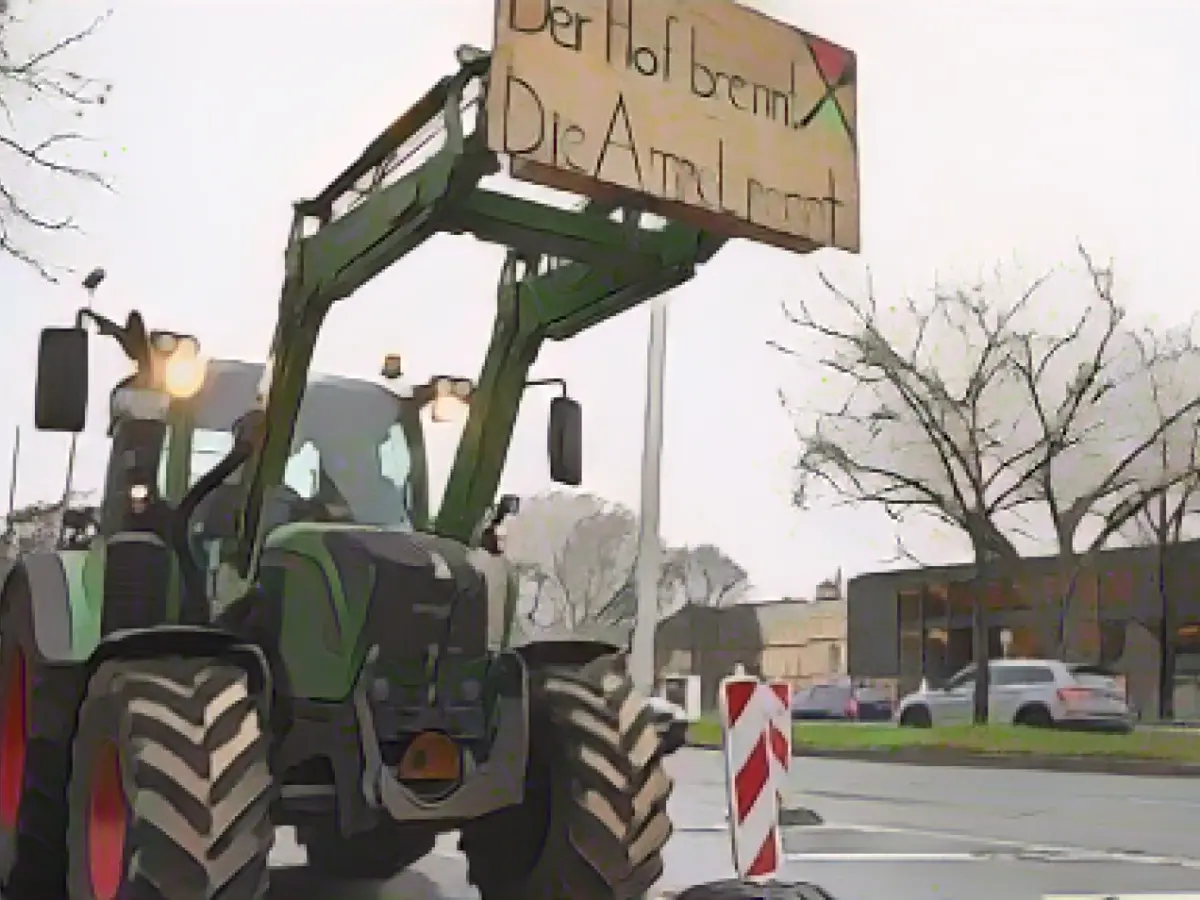Budget cuts - Expert: Agricultural diesel subsidies are out of date
One agricultural economist believes that the controversial subsidies for agricultural diesel are no longer in keeping with the times. "If you want to help agricultural businesses, you have to find other ways that are more targeted," said agricultural scientist Stephan von Cramon-Taubadel from the University of Göttingen.
The system of subsidies must be fundamentally changed, demanded von Cramon-Taubadel. "There is a lack of a broader concept for meaningful, sustainability-driven support for the agricultural sector," criticized the scientist. When it comes to income support, he said, you have to find the farms with income problems that you want to maintain and provide them with targeted help. Or money should be spent specifically on environmental services and the farmers who provide these services should be rewarded. Subsidies based on the size of the area are no longer appropriate. "It's out of date to pay more subsidies the more diesel someone uses."
Politicians in Germany must also recognize that the course for agricultural policy is set in Brussels. Instead of focusing on extra-high German standards for environmental regulations or animal husbandry, the aim should be to work towards harmonizing the rules across Europe. This also means accepting that one's own maximum demands cannot be enforced throughout Europe. This is the only way for a common market to function, said von Cramon-Taubadel.
Among other things, the German government wants to end tax breaks for agricultural diesel. Farmers fear high financial burdens. The diesel reduction and the exemption from vehicle tax together amount to around one billion euros. According to statistics, there are currently around 250,000 farms, which would lead to an average burden of 4,000 euros per farm, said von Cramon-Taubadel. "Of course, the farms are very heterogeneous - some large arable farms with many vehicles will lose significantly more than 4000 euros, but many smaller ones, for example with livestock and little land, will lose significantly less," said the scientist.
Frustration, challenges and uncertainty
Most large arable farms have been able to operate quite successfully in recent years thanks to the high prices. However, it is quite clear that there will also be some cases of hardship. "I have the impression that it is less about the actual amount per farm at the moment - there is a lot of frustration in an industry that is facing major challenges and a lot of uncertainty, which is very dependent on politics but is not receiving any clear signals from politicians," said von Cramon-Taubadel.
For example, a commission of experts has calculated that the socially demanded restructuring of animal husbandry will cause costs of four billion euros per year, which farmers will not be able to cover on their own. "Farmers accept the criticism and want to become more sustainable, but in the end nothing is implemented by politicians and now they are also getting a cut," said von Cramon-Taubadel.
Many farmers are trying to become more environmentally friendly, but that doesn't come for free. "And now the state is coming along and, from the point of view of agriculture, is not providing the aid that would be necessary, instead it is now adding another one on top - even if it is not such a big deal from a sober point of view and the reform of this subsidy is actually overdue," said von Cramon-Taubadel.
Read also:
- Why there is still no EU funding for green Saar steel
- 3 billion Saar Fund is unconstitutional
- Lack of snow also opens up new opportunities for winter tourism
- Abrupt end to e-car subsidies
- Stephan von Cramon-Taubadel, an agricultural scientist from the University of Göttingen in Lower Saxony, advocates for a reevaluation of agricultural diesel subsidies, arguing that they are outdated and less effective for supporting the agricultural sector.
- Von Cramon-Taubadel suggests that the subsidies should be redirected towards more targeted support, such as income solutions for struggling farms or environmental services that reward farmers who provide them.
- According to von Cramon-Taubadel, the German government's plan to eliminate tax breaks for agricultural diesel has raised concerns among farmers, with potential financial burdens impacting around 250,000 farms across the country.
- While changes to agricultural diesel subsidies may result in varying financial impacts for different farm sizes, von Cramon-Taubadel acknowledges that larger arable farms with numerous vehicles could incur higher costs, while smaller farms with livestock and limited land might experience fewer burdens.
- Beyond concerns about subsidy changes, many farmers face challenges and uncertainties in their industry, which is heavily dependent on politics and lacks clear signals from politicians.
- Von Cramon-Taubadel underlines the importance of addressing the critical issue of restructuring animal husbandry, which has been calculated to incur four billion euros annually in costs that farmers cannot cover on their own.
- Germany's agricultural sector will be impacted by decisions made in Brussels, as European regulations and guidelines, such as environmental and animal husbandry standards, are crucial in shaping the agricultural industry across Europe.
Source: www.stern.de








